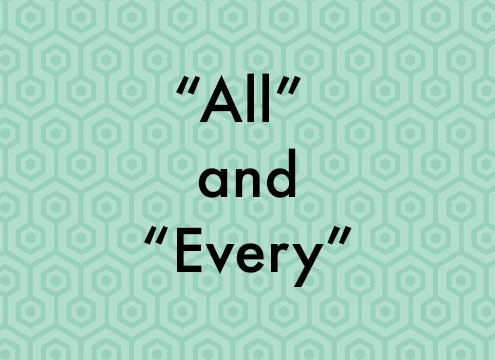Consider these sentences:
- Every book (cada libro) on the table is the same.
- All the books (todos los libros) on the table are the same.
“Every” is singular. In English we use every + a noun (sustantivo) in the singular. “All” needs the plural verb, unless it refers to an uncountable noun. Look at these examples:
- Every Cambridge Advanced student (cada estudiante aprobó) passed the exam.
- Every one of you should pass the First Certificate exam (todos y cada uno de ustedes debieran aprobar el examen de First Certificate).
- All the students passed the PET exam (todos los estudiantes aprobaron…).
- Rajoy comes to Tenerife every month (…viene a Tenerife todos los meses). If you were to say “Mr. Rajoy comes to Tenerife all months” you have made a mistake.
Now, let´s look at “all”:
- All the students passed the Cambridge Advanced exam (todos los estudiantes…)
- All of you should pass the First Certificate exam (todos de ustedes deberian…)
- All of the bread on the table was made in Tenerife (bread is not countable, so it takes the third person singular).
So the differences should be clear. “Every = cada uno/todos individualmente, and “every”= todos globalmente. Here are two more examples:
- Every house (cada casa) in the street is pink.
- All the houses (todas las casas) in the street are pink. Note the plural verb “are”.
Note the verb differences: every…is… and all…are… (unless the subject is uncountable).
The same rule (third person verb) applies to “everybody, everything, everyday and everyone”. Look at these examples:
- Everyday life (la vida diaria…) in Tenerife is a struggle.
- Everybody in the room is learning English.
- Everything in Mr. Clavijo’s office is expensive.
- Everyone (or everybody) who eats sugar is putting his health at risk.
“All” has other uses. This will be covered in the next article.











